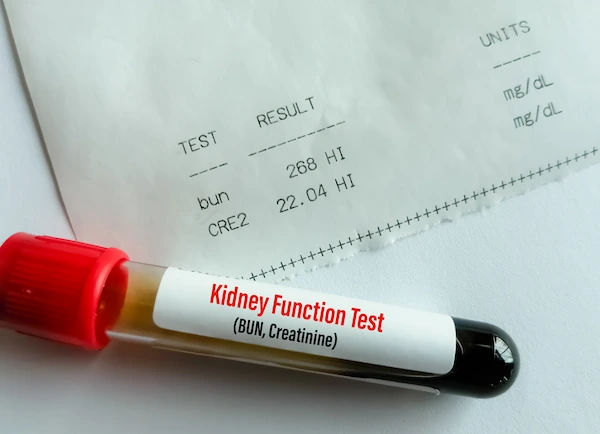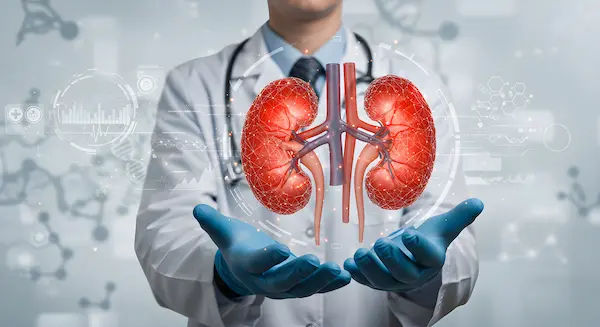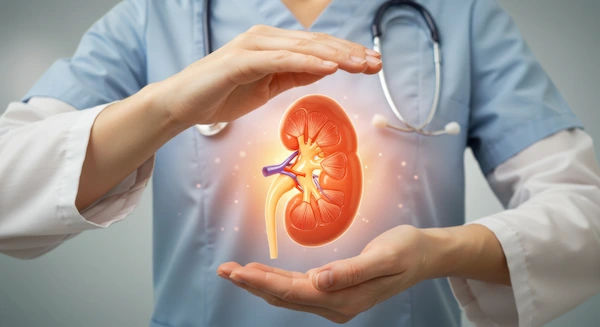Why Should You Get a Health Checkup During Monsoon?
Protect your health this monsoon! Discover why a timely health checkup is crucial during the rainy season to prevent common illnesses like dengue, malaria, typhoid, and more. Stay healthy, stay safe!

Written by Dr. Shaik Abdul Kalam
Reviewed by Dr. Rohinipriyanka Pondugula MBBS
Last updated on 9th Sep, 2025

The monsoon season may bring a welcome break from the heat, but it also opens the door to infections that thrive in waterlogged streets, fluctuating temperatures, and contaminated supplies. You might enjoy the cooler air and lush greenery, but this time of year is also notorious for triggering sudden fevers, stomach bugs, and joint aches that seem to appear out of nowhere.
That’s where a monsoon health checkup becomes essential. These seasonal tests are not just about ruling out infection; they’re about catching health issues early, before symptoms escalate or complications set in. Whether you’re dealing with mild fatigue or recovering from a recent illness, the right blood tests during monsoon can give you answers and peace of mind.
Let’s understand how seasonal testing can protect your health and how you can access these diagnostic packages easily with Apollo 24|7.
Common Monsoon Illnesses That Blood Tests Detect
Monsoon brings more than just damp shoes and traffic jams. It creates the perfect breeding environment for bacteria, viruses, and parasites that spread through food, water, and mosquitoes. While some infections are easy to identify, others hide behind symptoms like tiredness, mild nausea, or low-grade fever, making diagnosis tricky.
A few common conditions that rise sharply during the rainy season include:
- Dengue fever
- Typhoid
- Hepatitis A and E
- Leptospirosis
- Gastroenteritis and water-borne bacterial infections
These illnesses often show overlapping symptoms such as high fever, muscle cramps, vomiting, or liver pain. Without testing, they’re easy to confuse with a seasonal cold or stomach upset. Blood tests can differentiate between infections early, helping your doctor take timely action and prevent complications.
Liver, Dengue, Typhoid and Kidney Panel Inclusions
If you’re opting for a monsoon test package, make sure it covers these critical panels that target water-borne, vector-borne, and organ-impacting infections common in this season.
Buffer your understanding of what’s inside these packages with these specific inclusions:
1. Liver Function Test (LFT)
Contaminated food or drinks can put immense stress on your liver. Viral infections like Hepatitis A and E or prolonged medication use can also disrupt liver enzyme levels. The LFT checks for:
- Bilirubin levels (to detect jaundice and bile metabolism issues)
- Liver enzymes such as SGOT and SGPT
- Protein synthesis and detox efficiency, including albumin and globulin levels
This test is especially important during the monsoon because liver-related symptoms like nausea, yellowing of the eyes, or general weakness may not appear until the liver is already under stress. Detecting any changes early helps in prompt dietary and medicinal interventions.
2. Dengue Profile (IgG, IgM, and NS1 Antigen)
Dengue fever spreads rapidly during the monsoon and can turn severe very quickly. Its symptoms, such as high fever, body pain, and headaches, can worsen without proper monitoring. The dengue profile includes:
- NS1 antigen (for early-stage detection before antibodies are formed)
- IgM and IgG antibodies (for identifying active or past dengue infections)
The combined use of antigen and antibody testing provides a more complete picture, helping your doctor decide whether you need hospitalisation or can recover at home. It also helps rule out reinfections or secondary dengue, which are more dangerous.
3. Typhidot IgG and IgM
Typhoid often mimics flu or gastro symptoms, especially in its early stages. This blood test helps distinguish typhoid from other fevers and digestive illnesses by checking for:
- IgM antibodies (indicate a recent or ongoing infection)
- IgG antibodies (show prior exposure or a chronic carrier state)
It is particularly useful if you’ve been eating outside food or exposed to unfiltered water. Typhoid, if untreated, can lead to intestinal complications, so a clear diagnosis is essential.
4. Kidney Function Test (RFT/KFT)
Leptospirosis and dehydration are common during monsoon and can impact your kidney health silently. This panel evaluates:
- Urea, creatinine, and uric acid
- Electrolyte balance, including sodium and potassium
- Glomerular filtration efficiency to assess how well your kidneys are working
When your kidneys are underperforming, symptoms might be as vague as bloating, puffiness, or reduced urination. Early testing prevents the condition from worsening, especially if you’ve had fever, used strong antibiotics, or have a pre-existing health condition.
These panels work together to provide a full picture of how your body is coping during the monsoon, and where intervention might be needed to stop an issue from getting worse.
When to Test: Symptoms vs Prevention?
Should you wait for a high fever or severe symptoms before getting tested? Not always. Preventive testing can be just as important as diagnostic testing during the rainy season. Monsoon infections don’t always announce themselves with obvious signs; sometimes the illness progresses in phases, starting off mildly and escalating within days.
Get tested immediately if you notice:
- Persistent fatigue or muscle weakness, especially without any clear reason
- Sudden joint pain, stiffness, or backache that doesn't improve with rest
- Yellowing of eyes or skin, which could signal liver stress
- Fever lasting more than two days with no improvement or pattern
- Loose stools, vomiting, or stomach cramps after meals or street food
Even these symptoms, when ignored, can progress quickly to serious complications like liver inflammation, acute dehydration, or platelet drops in dengue. You shouldn’t wait to ‘see if it goes away.’
Opt for preventive testing if:
- You live in flood-prone, waterlogged, or mosquito-heavy neighbourhoods
- You’ve recently recovered from a bout of viral or stomach infection and want a status check
- You have young children, elderly parents, or someone with chronic illness at home
- You’re planning monsoon travel, staycations, or outdoor activities that increase exposure
Preventive testing during the early weeks of monsoon helps spot issues before symptoms appear, especially for those who are more vulnerable or already immune-compromised.
How to Stay Safe With Home Collection?
Worried about stepping out in the rain to visit a lab? You don’t have to. Apollo 24|7 offers safe, hygienic home sample collection, so you can get your monsoon health checkup done without the hassle of travel or exposure.
Here’s how it works:
- Book your test online via the Apollo 24|7 app or website
- Choose a convenient time slot for sample pickup based on your availability
- A certified phlebotomist arrives at your doorstep with full PPE and sterile equipment
- Samples are collected carefully and reports are delivered digitally within hours
This service eliminates the risks of traffic, wet conditions, and long waiting hours at diagnostic centres. It’s especially useful for individuals who are recovering, elderly, pregnant, or those who live alone. You don’t have to rearrange your day or worry about logistics; Apollo brings the lab to your living room.
Additionally, your digital reports are securely stored, can be accessed anytime, and shared instantly with doctors for quick consultation.
Get These Tests To Get A Yourself Checked up
Book Monsoon Checkup Packages via Apollo 24|7
Instead of booking separate tests, you can now access curated monsoon test packages through Apollo 24|7. These packages are designed to screen the most common seasonal infections, along with liver and kidney health, for all-around protection.
Why go for a package?
- Covers all key test panels in one go
- Saves you money vs. booking each test individually
- Includes doctor consultations if required
- Convenient home collection and fast digital reports
Whether you're recovering from illness, suspect something’s off, or just want to stay ahead of the curve this monsoon, these packages give you clarity without the stress.
Conclusion
The rainy season is refreshing, but it’s also unpredictable when it comes to health. Contaminated water, mosquito bites, and humidity-driven infections can take a toll, even when symptoms seem mild or confusing.
By getting a monsoon health checkup, you not only rule out serious issues like dengue or typhoid early, but also check if your liver, kidneys or immunity need support. Timely blood tests act as your health safety net, helping you bounce back faster and prevent repeat episodes.
Apollo 24|7 makes it easy to get tested from home with doctor-backed packages and personalised care. So this monsoon, don’t just protect yourself from the rain. Protect yourself from what it may bring with it.






